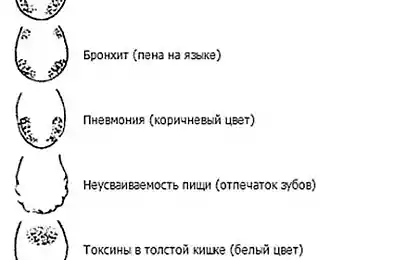495
6 common mistakes of people who consider themselves competent
Unfortunately, even the combined efforts of grammar Nazis don't help everyone remember the rules of writing "-tsya" and "-tsya". But the one who got good grades for writing in school and never be confused "wear" and "wear", sometimes can prevent embarrassing errors when writing. We've collected typical mistakes literate people in General.

1. The Union vs. the pronoun+particle/preposition
To confuse the Union with a combination of preposition and pronoun — not a blunder, but it often prevents b on the way to flawless spelling: a bad distinguish between "to" and "what if", "also" and "also", "too" and "same", "while" and "though". But, fortunately, the rules here are pretty simple.
"Also"/"too" should be written, if you can substitute at this place "and", "else" or "besides":
"He offered me a good job, also promising to bring interesting people". = "he offered me a good job and promised to take with interesting people".
"Same" and "just" write, if you cannot replace the combination of the word "and" and you can omit the particle "same" without losing the meaning. Instead of "as" and you can substitute a combination of "same way".
"You're frowning the same as your father."
Similar situation with "to" and "what if" — if you can move or drop "to" choose the second option, if not, first:
"Whatever you do, it will not help you" = "whatever you do, it will not help you"
And we must remember the expression, "not that": does "to" is always written together.
There are difficulties in distinguishing between Union "while" and the preposition with the pronoun "that". "While" can easily be replaced by combinations of "and", "however", "moreover". If you cannot replace — I write separately.
"He's handsome, smart and modest besides" = "and modest,"
"She didn't come to my party, despite the fact that I asked her three times"
2. Abuse "You" with a capital letter
It is not only what treatment immediately acquires a slimy shade — according to the rules of the Russian language in the texts were not addressed to a particular person, the pronoun should be written with a lowercase letter.
"You" are appropriate to use in a personal business correspondence as an expression of respect for the recipient, but here much depends on the degree of formality of the letter: not in all cases it is necessary to lean on the Shift.
And tradition to abuse capital letters came from the 90s, when there beginners Russian advertisers and PR people decided that "You" gives the reader the impression that the text is addressed to him personally.
3. "General"
It is surprising the number of people who cope even with complex foreign roots, but for some reason merge "in General" and "generally" unconvincing hybrid. The confusion apparently arose from the fact that both the word/expression can be used to synthesis and summarizing. Most under the "General" to mean "in General", although there is semantic nuance:
"He helped us and saved the company in General, he's right" = he's right, because he helped us and saved the company
"He helped us, saved the company, and in General he's right" = first, he helped us, and secondly, saved the company, and third — in any case he is right.
But no hard rules. And even if it is difficult to understand semantic, it is better to stay on one thing and not create word-of mutants.
4. Compounding in numerals
Compounding the case endings of numerals are always written with a hyphen and is only used in the recording of ordinal numbers that are not marked in Roman numerals. For example, "11th grade". And it is important to remember that in the recording calendar of compounding numbers are never used.
And if followed by two consecutive ordinal numbers, separated by a comma or Union, accretion is used in both, but if there are several, to increase case termination is only the latest:
"The participants who took 4th, 5th and 6th places will get diplomas"
Another difficulty with the designation of age — many people write, for example, "5-month-old kitten", although adding there eaten an adjective — you need to write at least "5-month". And even better word — a five-month.
5. "Payment for"
A common mistake is to write "payment for something". This is wrong: you must use either the expression "payment for something", or "pay anything". Those combinations you just have to remember.
"The fare in the subway again raised"
Also interesting: the Sad consequences of recruitment in MSU — READ ALL!
9 reasons to get a second degree
6. Confusion between paronyms
For example, to distinguish between "transcendental" and "transcendent" — not an easy task for those who are not interested in philosophy.
But many continue to be confused and less specific paronyms such as "competence" and "competence". Remember: competence is knowledge in some area, and expertise the terms of reference or questions that anyone is aware:
"The decision of this question not in my competence"
"Your competency in this area is not in doubt"
At risk also a pair of "sensitive" and "sensitive," "desirable" and "desired", "efficient" and "economical". For prevention you should look in the dictionary — and come up with good examples for learning.published
P. S. And remember, only by changing their consumption — together we change the world! ©
Join us in Facebook , Vkontakte, Odnoklassniki
Source: theoryandpractice.ru/posts/8142-grammar-nazi

1. The Union vs. the pronoun+particle/preposition
To confuse the Union with a combination of preposition and pronoun — not a blunder, but it often prevents b on the way to flawless spelling: a bad distinguish between "to" and "what if", "also" and "also", "too" and "same", "while" and "though". But, fortunately, the rules here are pretty simple.
"Also"/"too" should be written, if you can substitute at this place "and", "else" or "besides":
"He offered me a good job, also promising to bring interesting people". = "he offered me a good job and promised to take with interesting people".
"Same" and "just" write, if you cannot replace the combination of the word "and" and you can omit the particle "same" without losing the meaning. Instead of "as" and you can substitute a combination of "same way".
"You're frowning the same as your father."
Similar situation with "to" and "what if" — if you can move or drop "to" choose the second option, if not, first:
"Whatever you do, it will not help you" = "whatever you do, it will not help you"
And we must remember the expression, "not that": does "to" is always written together.
There are difficulties in distinguishing between Union "while" and the preposition with the pronoun "that". "While" can easily be replaced by combinations of "and", "however", "moreover". If you cannot replace — I write separately.
"He's handsome, smart and modest besides" = "and modest,"
"She didn't come to my party, despite the fact that I asked her three times"
2. Abuse "You" with a capital letter
It is not only what treatment immediately acquires a slimy shade — according to the rules of the Russian language in the texts were not addressed to a particular person, the pronoun should be written with a lowercase letter.
"You" are appropriate to use in a personal business correspondence as an expression of respect for the recipient, but here much depends on the degree of formality of the letter: not in all cases it is necessary to lean on the Shift.
And tradition to abuse capital letters came from the 90s, when there beginners Russian advertisers and PR people decided that "You" gives the reader the impression that the text is addressed to him personally.
3. "General"
It is surprising the number of people who cope even with complex foreign roots, but for some reason merge "in General" and "generally" unconvincing hybrid. The confusion apparently arose from the fact that both the word/expression can be used to synthesis and summarizing. Most under the "General" to mean "in General", although there is semantic nuance:
"He helped us and saved the company in General, he's right" = he's right, because he helped us and saved the company
"He helped us, saved the company, and in General he's right" = first, he helped us, and secondly, saved the company, and third — in any case he is right.
But no hard rules. And even if it is difficult to understand semantic, it is better to stay on one thing and not create word-of mutants.
4. Compounding in numerals
Compounding the case endings of numerals are always written with a hyphen and is only used in the recording of ordinal numbers that are not marked in Roman numerals. For example, "11th grade". And it is important to remember that in the recording calendar of compounding numbers are never used.
And if followed by two consecutive ordinal numbers, separated by a comma or Union, accretion is used in both, but if there are several, to increase case termination is only the latest:
"The participants who took 4th, 5th and 6th places will get diplomas"
Another difficulty with the designation of age — many people write, for example, "5-month-old kitten", although adding there eaten an adjective — you need to write at least "5-month". And even better word — a five-month.
5. "Payment for"
A common mistake is to write "payment for something". This is wrong: you must use either the expression "payment for something", or "pay anything". Those combinations you just have to remember.
"The fare in the subway again raised"
Also interesting: the Sad consequences of recruitment in MSU — READ ALL!
9 reasons to get a second degree
6. Confusion between paronyms
For example, to distinguish between "transcendental" and "transcendent" — not an easy task for those who are not interested in philosophy.
But many continue to be confused and less specific paronyms such as "competence" and "competence". Remember: competence is knowledge in some area, and expertise the terms of reference or questions that anyone is aware:
"The decision of this question not in my competence"
"Your competency in this area is not in doubt"
At risk also a pair of "sensitive" and "sensitive," "desirable" and "desired", "efficient" and "economical". For prevention you should look in the dictionary — and come up with good examples for learning.published
P. S. And remember, only by changing their consumption — together we change the world! ©
Join us in Facebook , Vkontakte, Odnoklassniki
Source: theoryandpractice.ru/posts/8142-grammar-nazi























